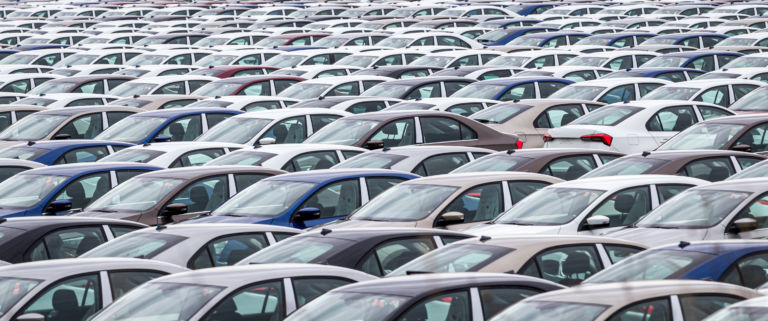Further decline in new registrations – E-mobility needs better framework conditions – Tariffs are counterproductive for the drive turnaround

New car registrations in Germany fell by 7.0% to 208,848 vehicles in September compared to the same month last year. Since the beginning of the year, 2,116,074 new passenger cars have been registered, which corresponds to a slight decrease of 1.0% compared to the same period last year. This is the result of an analysis of the statistics of the Federal Motor Transport Authority (KBA) by the Association of International Motor Vehicle Manufacturers (VDIK).
After the significant drop in August, purely battery electric passenger cars (BEV) recorded an 8.7% increase in registrations in September 2024, but this was mainly due to the massive decline in the same month of the previous year as a result of the subsidy freeze. This is because commercial buyers have no longer benefited from the BEV purchase premium since September 2023. In September 2024, 34,479 new BEVs rolled onto the roads, which corresponds to 16.5% of all new car registrations. Since the beginning of the year, new BEV registrations have amounted to 276,390 vehicles (-28.6%).
Bring forward review of fleet limits and expand charging infrastructure
“The automotive industry plays a central role in achieving the climate targets and international vehicle manufacturers in Germany strongly support CO2 neutrality by 2045. However, we are experiencing a severe setback in the drive transition due to the continuing slump in the number of new registrations for battery electric vehicles.
The CO2 fleet limits planned for 2025 represent a further obstacle to the ramp-up of electromobility, as they are based on assumptions that have not materialized. The European Commission must now take concrete countermeasures and bring forward the reviews for passenger cars and commercial vehicles by one year.
For a reliable ramp-up of electromobility, we also need a massive expansion of the charging and hydrogen tank infrastructure in Germany, a reduction in the price of charging electricity and tax measures for cars and commercial vehicles. Incentives for private customers and practical benefits through the use of zero-emission vehicles in road traffic can also support the drive transition,” says VDIK President André Schmidt.
Tariffs on electric cars from China are counterproductive for the drive transition
Commenting on the EU member states’ decision to impose additional import duties on electric cars from China from November, Schmidt says: “The VDIK rejects punitive tariffs and welcomes the fact that the German government has voted against their introduction. The car is an indispensable means of transportation for many people. Individual mobility must therefore not become a luxury, but must remain affordable. Many manufacturers from China are also currently offering cheap and affordable e-cars in Germany and Europe. The tariffs that have been decided on could make vehicles considerably more expensive and thus further slow down the transition to electromobility. Open and fair competition is the prerequisite for economic growth. The VDIK therefore relies on equal rules for all market participants and on dialog to avoid trade conflicts.”
Plug-in hybrids (PHEVs) fell by 2.9% last month compared to the same month last year, with 14,936 new registrations. The PHEV market share in September was 7.2 percent. Since the beginning of the year, new registrations have totaled 132,861 units (+7.7%).
In total, electric vehicles – i.e. BEVs and PHEVs combined – accounted for 49,415 new car registrations in September, 4.9% more than in the same month last year. Their market share was 23.7% (September 2023: 21.0%). Between January and September 2024, 409,251 electric passenger cars were newly registered, a decrease of 19.9% compared to the same period last year.
The number of new commercial vehicle registrations in September was 24,448, 9.8% lower than in September of the previous year. Since the beginning of the year, new registrations totaled 283,479 commercial vehicles (+4.1%).
| September | January – September | ||||
|---|---|---|---|---|---|
| +/- (%) | Share of total car market (%) |
+/- (%) | |||
| Passenger car | 208,8481 | -7,0 | 2,116,074 | -1,0 | |
| Electric vehicles (total) | 49,415 | 4,9 | 23,7 | 409,251 | -19,9 |
| – purely battery-powered | 34,479 | 8,7 | 16,5 | 276,390 | -28,6 |
| – plug-in-hybrids | 14,936 | -2,9 | 7,2 | 132,861 | 7,7 |
| Commercial vehicle | 24,448 | -9,8 | 283,479 | 4,1 | |
Source: KBA, VDIK